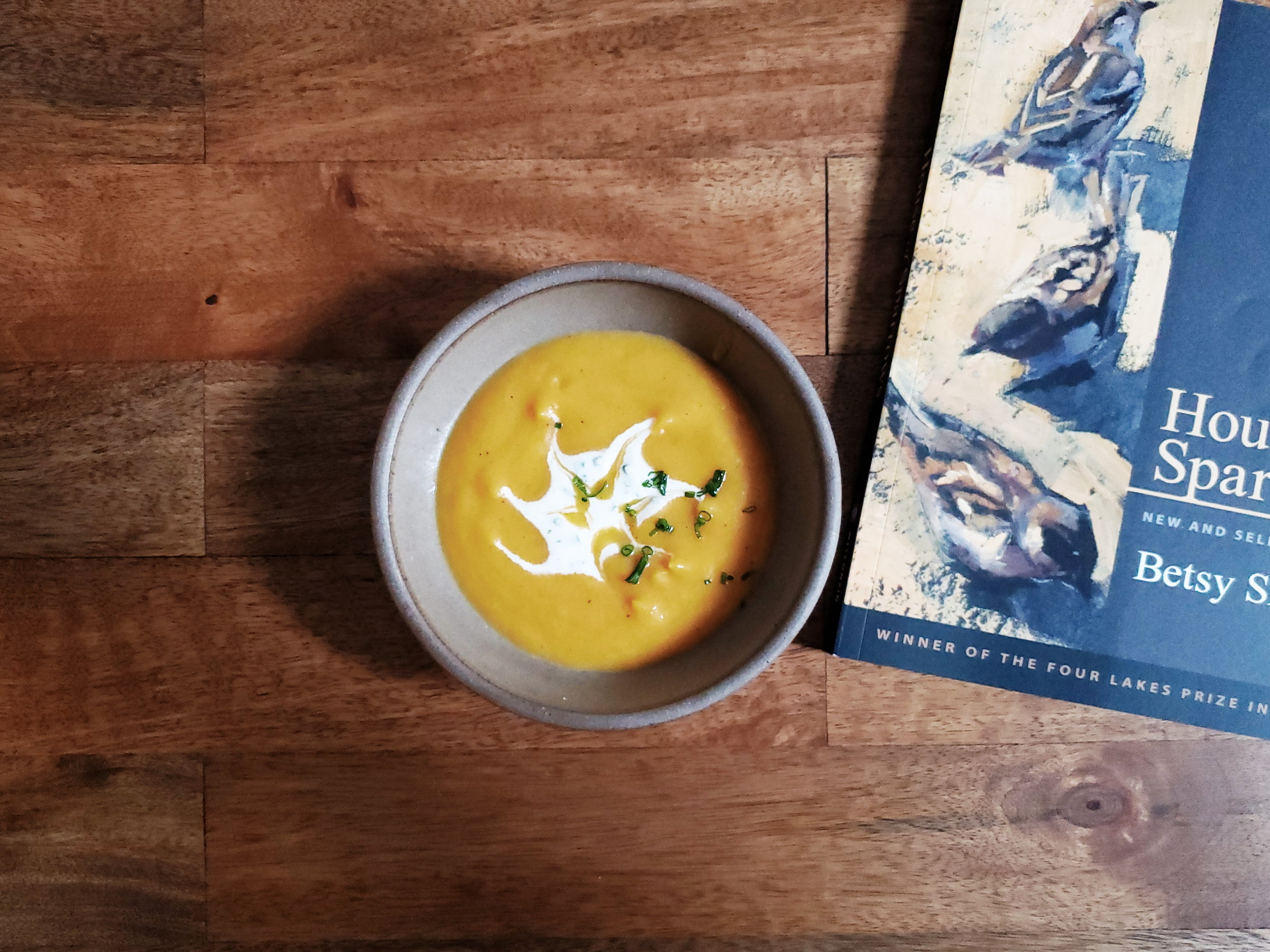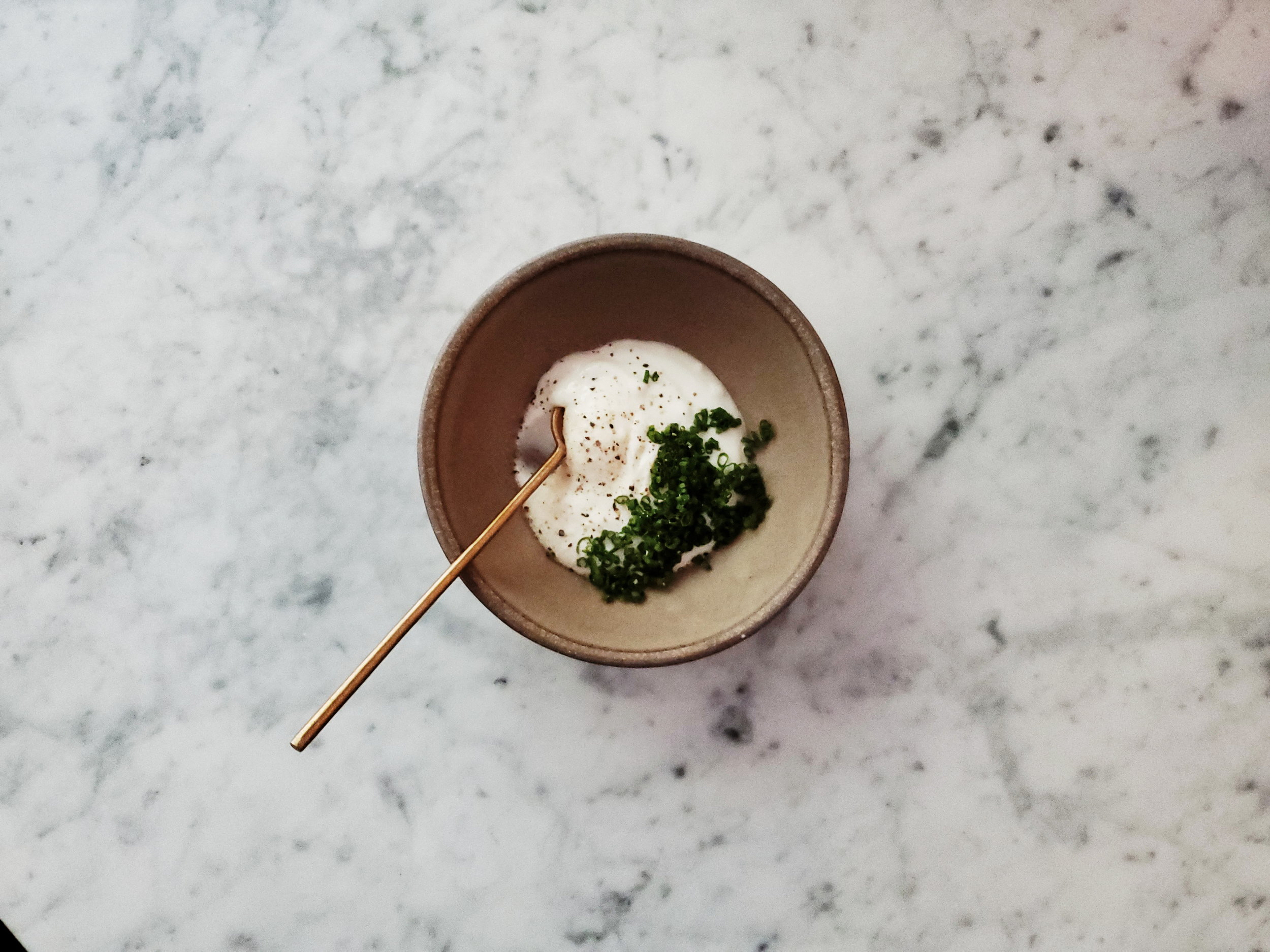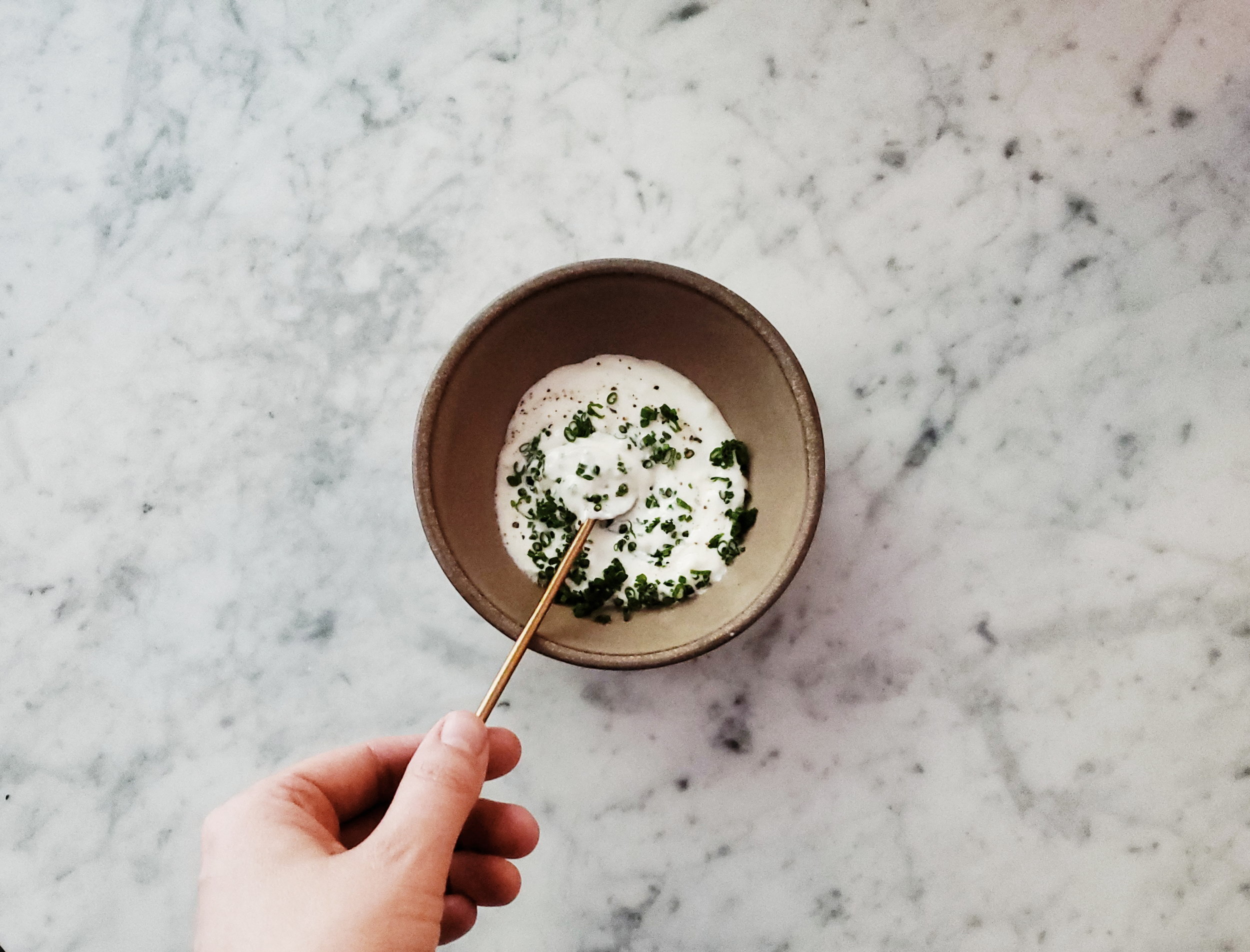Ever since I read a poem and realized I could make a recipe out of it—back in 2012—I also realized that when they’re used as a literary tool, ingredients go deep. They rustle up memories, make stories relatable, provide beautiful imagery, and stir our appetites. When poets use food masterfully, it tends to serve a purpose beyond our plate, and moves us into emotional territory that might not be comfortable at first, but essential nonetheless. This is that kind of a poem.
Betsy Sholl is a former professor of mine, and when I heard her new collection was coming out, I couldn’t wait to read it. Indeed, I’ve marked up and underlined many a poem inside House of Sparrows (affiliate link), including poems that have nothing to do with food (like finding an injured bat on the ground), but of course, we’re here in part for the food so I needed to find just the right poem to share. Have a read, and then we’ll talk about it.
Making Dinner I Think About Poverty
By Betsy Sholl
I mean the kind saints praise and scripture
calls blessed, the kind that inherits heaven
where maybe what’s left of us will be
more like a clear broth than the vegetables
and meat we chop up here, as the radio
blasts war, soup kitchen fills,
and down the block a crowd gathers
around two men yelling their different stories
at the cop as an ambulance wails off.
In its wake, I go back to cutting carrots
and beets, gazing into their concentric rings.
Everything with its secret heart,
Saint Francis says, where it’s better to be
prey than predator, better to step into
the net than be the one who rigs it.
Poverty, he says, a word so pure
it can’t be hyped. It sees into the dark
vessels of the heart, where the blessed know
what they lose, what sinks to the bottom,
enriches the stock—which we will ladle out
to those shuffling in with their empty bowls,
as if they follow the saint’s hard recipe,
the one that says: Put everything in the pot
and let fire take over.
From House of Sparrows by Betsy Sholl. Reprinted by permission of the University of Wisconsin Press. © 2019 by the Board of Regents of the University of Wisconsin System. All rights reserved.
I do this too, think about things like poverty and genocide and what have you, while I’m making dinner or taking a walk, or while I can’t sleep at night. It seems there’s a discussion of two poverty’s: one of choice, that the saints and scriptures speak of, and one of circumstance, that the nightly news and nonprofits speak of. There’s also a tension on the part of the speaker, almost asking, Where do I fit?
How might I take where I am right now, my privilege and empathy, and translate it? I’m not sure the poem answers the question, or that it’s supposed to. These questions are large and looming, and can’t be answered after a handful of lines or a handful of months.
What I also thought about while reading this poem is cooking as both distraction and resistance. Cooking can both separate us from the hard things we see and hear of (“I go back to cutting carrots…”) keeping us cocooned around our own tables, in our own homes. But as activist and chef Julia Turshen says, “It’s important to take care of yourself so you can better take care of the world.”
I used to approach these posts with resoluteness, to offer a concrete interpretation, a sense of finality. But today I’m more inclined to pause and let the ideas circle over my mind and my heart for a while. And rather than wait to share this with you until that process is over (because who knows how long that might be), I’m offering it now, considered yet still incomplete. After all, that’s a truer reflection of how we operate as human beings, and maybe some of you will join the conversation in the comments, too.
A final thought: I love the end—“put everything in the pot/ and let fire take over.” It’s both a call to accept life’s challenges and also to hope that against all odds, we might be able to leave everything behind we don’t need and start again.
Golden Beet Soup With Chive-Spiked Crème Fraîche
This soup comes from the Eat This Poem cookbook, and was one of the first recipes I developed when working on the manuscript. One of the things I love about it is beets—an often polarizing vegetable—are made approachable by using the golden variety, which has a milder, though still earthy taste. Paired with the sweetness of butternut squash, a little splash of acid from apple cider vinegar, than swirled with crème fraîche that’s been liberally dotted with chopped chives, it’s a soup I hope you’ll love as much as I do. If it’s warm when you’re reading this, serve it chilled!
Ingredients
4 to 6 golden beets, scrubbed, tops and ends removed
1 small butternut squash, halved lengthwise and seeds removed
Extra virgin olive oil
1 small onion, roughly chopped
1 garlic clove, roughly chopped
3 to 4 cups vegetable stock
Salt
Zest of 1 lemon
Freshly cracked pepper
2 tablespoons minced chives
¼ cup crème fraîche
Instructions
Preheat the oven to 400°F. Wrap beets individually in foil and place on a sheet pan. Add a drizzle of oil to the butternut squash, then place them cut-side down on a second sheet pan. Place both pans in the oven, cooking the beets for 1 hour, and the squash for 30 minutes to 45 minutes, or until tender. Once cool, peel beets gently with your fingers; skins should come away easily. Quarter the beets and place them in a medium bowl. Scoop out the flesh of the squash and place it in the same bowl with the beets.
Warm 2 tablespoons of oil over medium heat in a small skillet. Add onion and garlic, and cook for about 5 minutes, or until soft. Scrape into a high speed blender, then add the reserved beets and squash, 1 teaspoon salt, and 2 cups of the stock. Blend on high for several minutes, until silky, adding more stock as needed. Pour into a small stockpot, taste to see if you need a bit more salt, and add the lemon zest. Keep soup warm while you make the crème fraîche.
Stir the chives into the crème fraîche and season with salt and pepper. Spoon a dollop into each bowl before serving.





